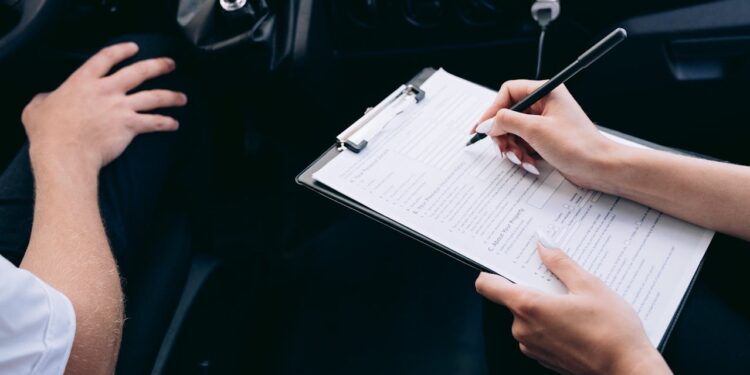When selling or buying a used car in Tanzania, it’s not just about shaking hands and handing over the keys. There’s a legal trail that must be followed to ensure both parties are protected — and the vehicle doesn’t end up in legal limbo. Whether you’re a first-time seller or a seasoned car flipper, this guide will walk you through the legal steps for transferring ownership, completing vehicle registration, and ensuring your own safety throughout the process.
Let’s break it all down in simple, practical steps you can follow today.
Why Following Legal Procedures Matters
Selling a car isn’t as simple as posting it on a classified website and handing over the logbook. If you skip legal procedures:
- The car could be involved in illegal activities under your name.
- You may be held liable for traffic fines or accidents.
- The buyer may refuse to pay the balance without proper documents.
Following proper legal steps protects your money, your reputation, and gives peace of mind to both parties.
Step 1: Gather Essential Vehicle Documents
Before you even list your car for sale, make sure the following documents are ready:
- Original vehicle logbook
- Valid road license
- Vehicle inspection certificate
- Proof of insurance
- Original purchase receipt or import documents
Pro Tip: Always keep photocopies of all documents for your own records — just in case anything goes sideways.
Step 2: Confirm Vehicle Status With Authorities
Go to the Tanzania Revenue Authority (TRA) or LATRA (Land Transport Regulatory Authority) to confirm:
- No outstanding loans or fines attached to the vehicle
- Proper registration under your name
- The car is not flagged as stolen or under investigation
Want to double-check everything before selling? Visit automag.tz — a top resource for Tanzanian car buyers and sellers, including the latest regulatory changes.
Step 3: Draft a Sales Agreement
Never skip this step, even when selling to a friend. A vehicle sales agreement should include:
- Full names and contact info of buyer and seller
- Vehicle details: make, model, registration number, chassis number
- Sale price and payment method
- Date of transaction
- Signatures of both parties and at least one witness
You can download a free template or get one from a licensed advocate.
Step 4: Complete Ownership Transfer at TRA
Here’s where the rubber meets the road.
4.1 Documents to Submit at TRA
- Original logbook
- Filled and signed transfer forms (available at TRA)
- Copy of buyer’s national ID or passport
- Sales agreement
- Road license and insurance papers
4.2 Fees Involved
Fees vary depending on the vehicle category but usually include:
- Transfer fee
- New registration fee (if changing number plates)
- Stamp duty on sales agreement
Check with your nearest TRA office or their official website for the latest fees and requirements.
Step 5: Deregister From Your Name
This is one of the most overlooked but critical parts of the process. Once the transfer is accepted by TRA:
- Request a deregistration letter
- Confirm the new owner’s name is updated in the vehicle system
If you skip this, you remain legally responsible for the car, even if it’s no longer in your possession.
Step 6: Cancel or Transfer the Insurance
Contact your insurance provider and either:
- Cancel the policy and claim a refund (if you paid in advance)
- Transfer the insurance to the buyer (if they agree)
Why this matters: If the new owner crashes the car, your name could still be on the insurance policy.
Step 7: Vehicle Roadworthiness and Safety Checks
Before finalizing the sale, consider doing a final inspection at a certified center. This adds value and builds buyer trust.
Ensure:
- Brakes, lights, and tires are in good condition
- Seat belts are functioning
- Vehicle Identification Number (VIN) matches the logbook
For buyers looking for certified roadworthy vehicles, platforms like auto24.tz offer well-inspected used cars ready for ownership transfer.
You’ll find options from Toyota Harrier, Nissan Dualis, Subaru Forester, and other popular models fit for Tanzanian roads.
Step 8: Notify Authorities of Sale
In some regions in Tanzania, sellers are expected to notify LATRA or local authorities of the change in ownership to:
- Prevent any liability issues
- Avoid future fines
- Assist in fraud prevention
Step 9: Remove Your Personal Data From the Car
Simple but often forgotten:
- Delete Bluetooth and app connections
- Remove dashcams or trackers
- Wipe navigation history
- Clear personal documents from glove compartments
Treat your car like your phone — wipe it clean before handing it over.
Step 10: Meet in a Safe Place for Exchange
Avoid making the exchange at your home or in a deserted area. Choose:
- Public parking near a police station
- A bank if you’re collecting cash
- Well-lit, secure areas with surveillance
Safety first — no matter how trustworthy the buyer seems.
Step 11: Accept Safe Payment Methods
Avoid cash when possible. Go for:
- Mobile money with confirmation (M-Pesa, Airtel Money)
- Bank transfers
- Escrow services (especially for large amounts)
Only hand over the car after confirming the full payment has cleared.
Step 12: What If the Buyer Is From Outside Tanzania?
Selling to a buyer from another country (e.g., Kenya, Uganda, Rwanda)?
- Use a customs clearing agent
- Export documentation will be needed
- Vehicle must be deregistered before export
You can still list your car on Tanzanian platforms like auto24.tz — which attract buyers across East Africa.
Helpful Resources for Sellers in Tanzania
- TRA Vehicle Registration Guide
- LATRA Official Portal
- automag.tz – For local automotive news, updates & guides
- auto24.tz – Trusted platform for listing and buying used cars in Tanzania
Conclusion
Selling your car in Tanzania doesn’t have to be a legal minefield — but it can be if you skip essential steps. By following these legal steps, you ensure that the ownership is properly transferred, you’re protected against future liabilities, and the buyer gets a clean, roadworthy vehicle.
Want to make the process even smoother? Get listed on trusted platforms like auto24.tz and stay updated with regulations through automag.tz.
Make the sale. Avoid the stress. Drive away with confidence.
FAQs
1. How long does a vehicle ownership transfer take in Tanzania?
Typically, it takes 3–5 working days after submission of all documents at TRA, but delays can occur depending on office workload.
2. Can I sell a car in Tanzania without a logbook?
No. The logbook is a legal document proving ownership. Without it, the transfer cannot be completed legally.
3. What if the buyer wants to pay in installments?
If you agree, have a legally binding installment contract drafted by a licensed advocate. Retain the logbook until full payment is done.
4. Do I need to inform the insurance company after selling the car?
Yes. Informing them protects you from future claims related to the car after the sale.
5. Is it safe to sell my car online?
Yes — if you use reputable platforms like auto24.tz and follow secure payment and meeting protocols.




